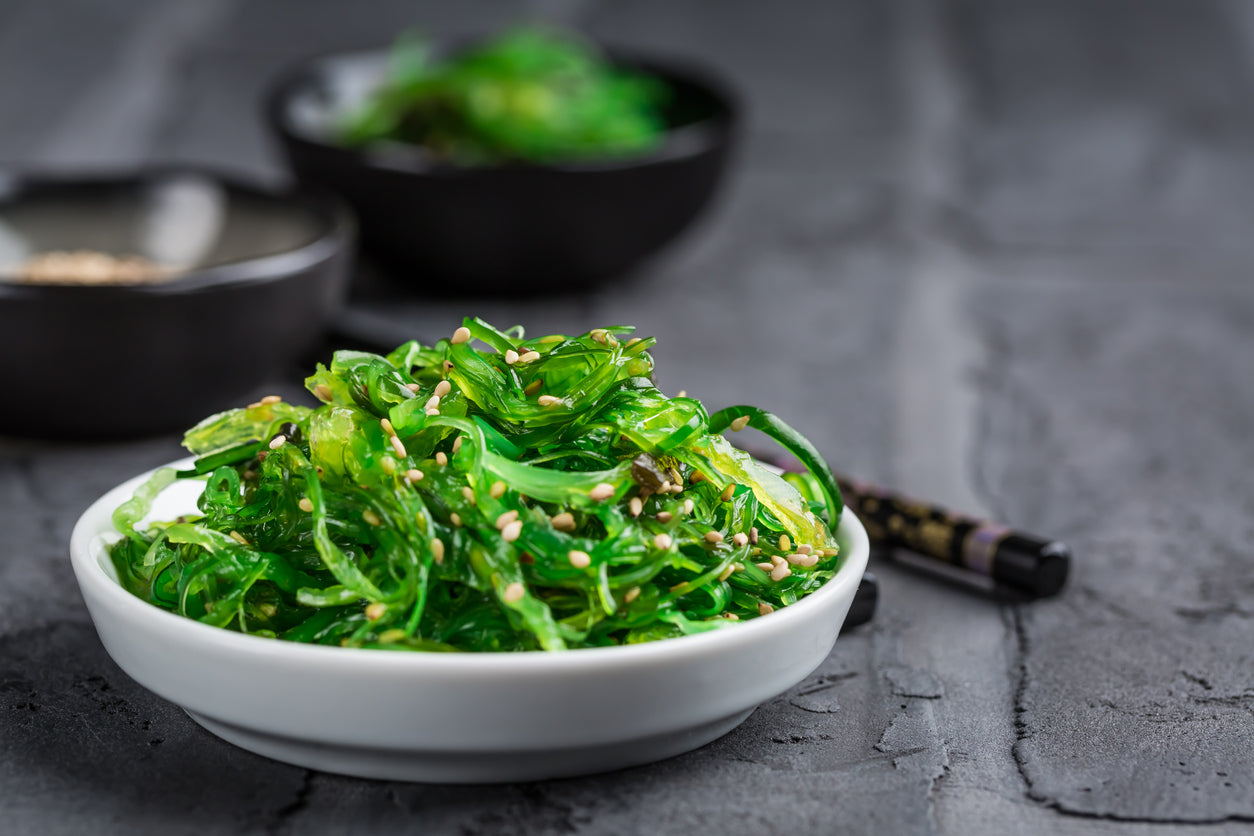The “supergreen” from the sea – the important health benefits of wakame seaweed

While some people might think that eating seaweed holds little appeal, they may have enjoyed wakame without even knowing it. This nutritious sea vegetable, also known as undaria, is a primary ingredient in flavorful miso soup. Believe it or not, wakame seaweed is a true delicacy that features a rich, briny flavor and a chewy, satisfying consistency.
The flavor of wakame, in fact, is a classic example of the much-prized feature known as "umami." Considered the "fifth taste" (along with sour, bitter, salty, and sweet), umami is best defined as a "savory" quality. Now, wakame seaweed is becoming increasingly valued in the United States for its many health benefits. So let's see what this "marine supergreen" has to offer.
Wakame promotes heart health
Wakame is believed to support heart health by acting against high blood pressure, a primary factor in heart disease. Animal studies have shown that constituents in wakame significantly decrease systolic blood pressure readings. Limited research on humans also supports wakame's ability to lower blood pressure. In addition, animal studies have shown that wakame may lower levels of unhealthy LDL cholesterol. But that's not all wakame brings to the table when it comes to heart health. It is rich in folate, or vitamin B9, which has been linked to a lower risk of strokes.
In addition, antioxidant nutrients in wakame, such as vitamins C, E, and A, can help to scavenge free radicals that cause oxidative stress. Wakame also contains vitamin K. This fat-soluble nutrient has been shown to help usher calcium from the blood and back into the bones where it belongs - thereby acting against artery-clogging atherosclerosis. Finally, this nutritious seaweed contains anti-inflammatory omega-3 fatty acids. The beneficial constituents in wakame seaweed add to an undeniably heart-healthy food.
Wakame provides iodine for optimal thyroid function
The mineral iodine is essential to the production of thyroxine, a thyroid hormone that helps to promote normal metabolism. So important is iodine to thyroid function that deficiencies can trigger low thyroid levels, or hypothyroidism, characterized by fatigue, dry skin, and weight gain. Unfortunately, iodine deficiencies are widespread – especially in those who don't use iodized salt or eat animal products. In fact, 2 billion people worldwide are estimated to have low levels. But, wakame is packed with this vital mineral.
According to researchers at the Harvard T.H. Chan School of Public Health, a single gram of wakame seaweed contains 42 mcg of iodine - almost a third of adults' daily reference dietary intake. However, the tolerable upper limit for iodine is estimated to be 1,100 mcg a day. As excessive amounts of dietary iodine can worsen thyroid symptoms, it's important to eat wakame in reasonable amounts, particularly if you have autoimmune or thyroid conditions. Check with your integrative doctor if you have questions about the appropriate iodine intake.
Wakame helps regulate blood sugar and promotes healthy weight
Yet another way in which wakame potentially benefits health is by regulating blood sugar. One month-long clinical study showed that wakame seaweed helped reduce blood sugar levels and improve insulin resistance in type 2 diabetics. This is important as insulin resistance interferes with the body's ability to use insulin effectively for transporting sugar into cells, resulting in high blood sugar. Animal studies, as well, have suggested that wakame reduces blood sugar production and helps to control levels.
Another "plus" for wakame is that it may help promote weight loss and combat the obesity that can trigger diabetes. Diet plans that include seaweed are believed to help reduce body weight and abdominal fat more than those that don't contain seaweed. And, mice on a high-fat diet given seaweed gained less weight than their counterparts who did not receive seaweed. Finally, two tablespoons of wakame deliver healthy amounts of magnesium, manganese, calcium, copper, phosphorus, and iron – along with a not-too-shabby half-gram of plant-based protein – all at a negligible 5 calories! Wakame appears to be an ideal low-calorie food.
Enrich recipes with wakame
Versatile wakame can be eaten over organic tofu, ramen noodles, or rice. It can also be used in sushi rolls, stirred into soups, and added to quiches. Or, serve it in a refreshing cold salad with arugula and kale, topped with organic soy sauce, rice vinegar, and sesame oil. (Pro tip: Wakame's soft, silky texture pairs well with crunchier foods such as cucumbers or water chestnuts).
You can find wakame seaweed in Asian grocery stores, health food stores, and some supermarkets. If you buy it in dried form, it should be rehydrated before use. Simply soak it in cool water for five to ten minutes, drain well and enjoy. By the way, don't be surprised when the wakame expands greatly, sometimes up to ten times its dried size.
Wakame is high in sodium, so, when possible, opt for a brand that is lower in salt. If high blood pressure is a concern, check with your nutritionist or integrative doctor before trying wakame.
Loaded with minerals and antioxidants, wakame seaweed makes a phenomenal addition to your healthy diet.
Sources for this article include:
Healthline.com
MindBodyGreen.com
Harvard.edu
NIH.gov
Masterclass.com






